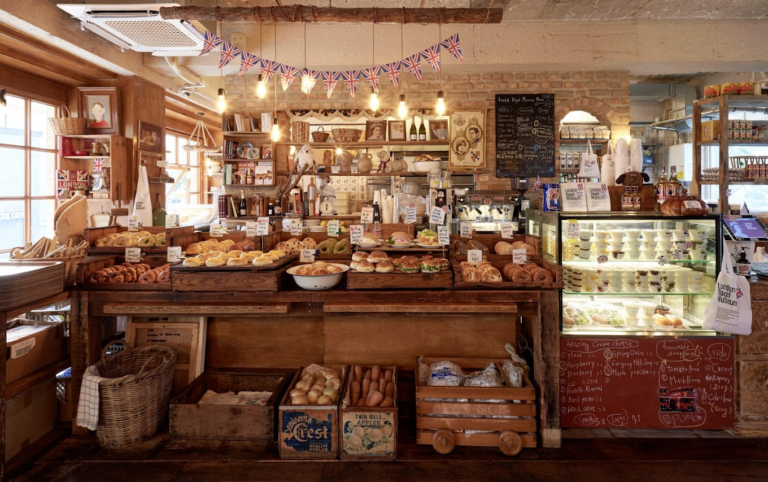A 26-year-old worker at the London Bagel Museum (LBM), one of the hottest bakeries in South Korea, recently died after working nearly 80 hours in a single week. Jeong-Hyowon, a junior store manager, was found collapsed in the company dormitory on July 16. Days before his death, he texted his girlfriend: “I haven’t eaten a single meal today.”
LBM management has denied responsibility and refused to provide formal records. However, evidence from schedules and text exchanges suggests chronic overwork: he averaged 58 hours per week over preceding months, spiking to 80 hours in the final week. Hyowon’s labor included front-of-house service, staff recruitment, training, inventory, and logistics, which were beyond his official scope.
But this is not just the story of one individual. It is a reflection of an entire industry that normalizes overwork while glorifying aesthetic perfection.
The Illusion of “Density”
Two years ago, LBM’s Chief Brand Officer, Ryo, described the company’s spatial philosophy:
“Density is not about filling a space with objects. It’s layers, staff placement, lighting, air, the clatter of dishes. Together they create countless layers. I want visitors to feel energy so strong it almost overwhelms them.”
Ryo’s philosophy extends to taste: classics are deconstructed and recombined to create a “rhythm” of flavor resonating with the curated environment. Employees are “the most beautiful objects in the store,” placed in natural light so they “shine.” In this framework, work is rendered as an aesthetic element, and human presence becomes a layer in the spatial composition, a piece of decoration rather than a person with needs and limits. The very people sustaining the brand are framed as objects, valued for how they contribute to the illusion of beauty rather than for their humanity.
The Dark Side of the Brand
This objectification has a deadly cost. Behind every display, every Instagram-worthy interior, exhausted workers absorb labor that sustains the brand. Jeong-Hyowon’s death exposes the contradiction between rhetoric and reality, showing how the curated density, depth, and beauty are maintained through exploitation and invisible suffering.
Ryo’s mantra to “be yourself” is just packaged as empowerment, yet authenticity is sold as consumable. Customers buy not only bagels but the idea of inhabiting her taste and environment, and staged authenticity, a system in which workers’ well-being is secondary to the brand’s illusion of realness.
Meanwhile, the company has publicly denied any evidence to overwork. LBM issued a statement claiming that while extended hours may have occurred during busy periods, the reports of 80-hour workweeks are “completely unacceptable” and inconsistent with their records, which show an average of 44.1 hours per week over the employee’s entire 13-month tenure. The company, though, did not provide data comparing the final week or prior 12-week averages, the key metrics used in evaluating overwork-related illnesses under Korean labor law.
Industry Excuses
Unsurprisingly, when tragedy strikes, the industry’s reflex is defense:
“Everyone works like that.”
“The bakery industry is always like this.”
“The employee wasn’t forced.”
The lines are familiar, almost rehearsed. But repetition doesn’t make them true. If a business cannot function without exhausting its employees, then its success is not an achievement. It is extraction. Profit earned through overwork is not innovation, but just exploitation disguised as passion, as craftsmanship, as branding.
Also overwork itself is not a design flaw. It is the design itself, a system that aestheticizes labor until suffering looks like dedication and exhaustion reads as excellence.
A Call Beyond Aesthetics
The tragedy of Jeong Hyowon demands reckoning. We are drawn to spaces that feel layered and alive. We are seduced by brands that promise authenticity. But at what cost? When employees are treated as objects, when labor is aestheticized rather than respected, the marketplace consumes human life for beauty.
To those in similar conditions: do not normalize overwork. Do not accept “this is just how the industry works.” Exploitation is not inevitable. Profit that requires life-threatening hours is borrowed from the lives of those who deserve safety, health, and respect.
By. Claire Yoonjeong Choi
Works Cited
Seo, Hye-mi, and Lee, Joo-bin. “‘Exclusive: LBM Told Overworked Employee’s Family to ‘Act Conscientiously’…Even Tried to Control Staff Speech.’” The Hankyoreh, 28 Oct. 2025, https://www.hani.co.kr/arti/economy/consumer/1225997.html.
“‘A 20-Year-Old Worker at London Bagel Museum Allegedly Worked Nearly 80 Hours a Week Before Passing in July.’” Labor Today, https://www.labortoday.co.kr/news/articleView.html?idxno=230869.
Jeong, Jae-hwon. “[Interview] Lee Hyo-jung, Founder of London Bagel Museum: ‘Taste Is More Than on the Tongue; Good Spaces Create Good Customer Experiences.’” Economy Chosun, 1 May 2023, https://economychosun.com/site/data/html_dir/2023/05/01/2023050100022.html.


